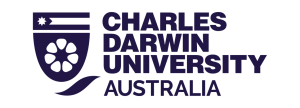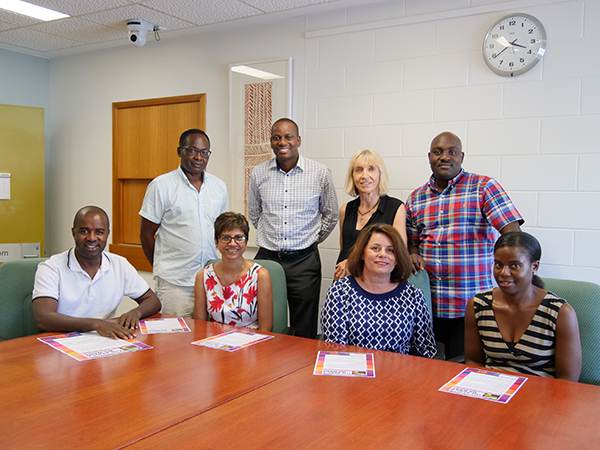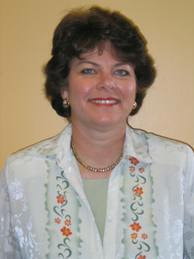WHAT IS UNDERSTANDING ASPIRATION COLLOQUIUM?
AFRICAN-AUSTRALIAN EDUCATION AND HEALTH NARRATIVES
The Commonwealth of Australia is home to several thousand citizens of African origin. Since 2011 waves of immigrants, especially from conflict zones in a range of African nations, have contributed to Australian intake of settlers from African countries. Figures from the 2016 census affirmed that Australia is home to people of over 100 ethnic and cultural groups, including the African community. This diverse group from African community, consist of people from the West, East, Central, North and South Africa (MYANT, 2012). Common denominators among these communities are the communal spirit—a sense of belonging and brotherliness—and a respect for education. Despite this, the African communities in the Commonwealth of Australia are seriously concerned about the aspirations for higher education among the African youths (MYANT, 2012; Abu-Duhou, 2006; Farfor, Andrew & Finlay, 2003). The majority of African settlers in the states and territories were originally from South Sudan (derived from ABS, 2016 using ABS TableBuilder), implying that they have entered Australia as humanitarian migrants. Read more
When: October 24 – 25 2019
Where: Charles Darwin University, Northern Territory, Australia
KEYNOTE SPEAKERS
Prof Ngozi Osarenren
Department of Educational Foundations
University of Lagos, Nigeria.
Quality Education and the Nigerian dilemma: Imperatives for Counselling
Education is the greatest instrument for enduring change in a given society. The content of education at the different educational levels in Nigeria is quite pertinent in understanding the concept of the total Nigerian child. There are some policies designed to foster quality education and improve learning outcomes among students in Nigeria educational settings. It is important to mention that proper implementation of the policies is considered as key in this discourse. This paper is primarily focused on the quality of education at the basic and tertiary levels of education in Nigeria. The paper examined the essential ingredients hampering the delivery of quality education in Nigeria. Some of the issues affecting quality of learning outcomes include quality of teachers and teaching; quality of students and students’ academic performance; funding and investment in education; staff remuneration; relevance of the curriculum; infrastructure/learning environment among others.
In discussing teacher quality the recruitment and retention of teachers are considered very important. Is qualified, appropriate and adequate number of teachers recruited in the quest for achieving quality education? Admission policy as a determinant of student quality is viewed as critical in the process of understanding the eventual academic performance of students in both internal and external examinations. This paper also discussed the efficacy of systematic counselling and psycho-social support in helping students to come to terms with some of the challenges they may face in School and Non-School settings. It is against this background that it is concluded that fully functioning members of any society should be a reflection of the quality of education they have imbibed.
Associate Professor Nina Evans
School of Information Technology and
Mathematical Science
University of South Australia
Female leaders in Science, Technology, Engineering and Mathematics (STEM) for the ‘Africa We Want
Since the mid-1990s more women have been graduating from universities and entering the professional workforce in Science, Technology, Engineering and Mathematics (STEM) disciplines, yet the poor representation and limited career-satisfaction of women at senior management levels continues throughout the world. The challenges faced by women in STEM areas include a male-dominated culture, stereotyping, glass ceiling, discrimination and remuneration inequality and the situation for women in the workplace has not drastically improved with time and increased legislation.
The Social Cognitive Theory indicates the dynamic interaction between environment, personal and behavioural factors. Environmental factors include the social and physical environments such as country, location and office environment. Personal factors refer to cognition, affection and biological events, including the individual’s emotional state, habit of thinking and self-efficacy. Self-efficacy describes a person’s judgement of their capabilities to execute courses of action required for performance and these beliefs provide the foundation for human motivation, well-being and personal accomplishment. The Social Cognitive Theory provides a framework for designing, implementing and evaluating behavioural change programs.
It is widely believed that management can do more to implement companywide programs to promote diversity in STEM related workplaces and to create a culture that attracts women and allows them to be productive team members. However, despite the increased understanding of the challenges facing women and all the efforts to address the inequalities, the problem still exists today; in Africa, and in the rest of the world. Based on the Social Cognitive Theory explanation of how people acquire and maintain certain behavioural patterns, a question arises about the connection between women’s behaviour – and what they believe they can achieve – and the ongoing challenges that limit their career planning, progress and satisfaction. Unless women believe that their actions can produce the outcomes they desire, they have little incentive to act. To become ‘The Africa We Want’, African countries should increase the representation, leverage the capabilities and support the career planning and progression of the women in STEM related fields.
Dr Ezekiel Uba Nwose
School of Community Health
Charles Sturt University, Australia
Cultural practice being recycled in modern families: The education and health nexus
It is a great honour and privilege to be invited to do this keynote presentation on “The Africa We want: Education and Health Nexus”. The invitation did come with worry on what real-life example to contextualize. However, the concern for the colloquium is “regarding the lack of educational and health aspirations, especially amongst the youth of African migrant communities”. Hence, this presentation is going to be on health aspiration that most of us subconsciously negate in our embrace of social support. It stems from cultural practice that constitutes a basis of mental trauma that impacts on our health. It is hoped that the exposition would stimulate discussion on ethics, which will translate to education among the Africans in diaspora and possibly arouse some interest in health profession among the youth.
Gary Fry
Lecturer, College of Education
Charles Darwin University, Australia
Indigeneity as a foundation for patterned Northern Territory remote Aboriginal student achievement within a stratified Western education system
This study employs a Critical Race Theorist (CRT) counter-narrative to the nature of NT remote Aboriginal education policy dysfunction. Over the past decade, national testing in English and Mathematics for primary and junior secondary education achievement reveals NT remote Aboriginal children having consistently under-performed on these tests, at a much lower level than all other groups across Australia. This performance is situated within a broader and stratified education system, of which ongoing education reform attempts have failed to address. This entrenched pattern has NT remote Aboriginal students located at the bottom of this layering, underpinned by an Aboriginal racial identity as a defining characteristic. For NT remote Aboriginal families, this layering is bound within a deepened embeddedness of racism and economic ordering that has relegated remote families to a life of socially-constructed marginalisation, on their own lands.
This study applies CRT as a primary tool of analysis, Aboriginalising its tenets to respond to the unique narrative of NT Aboriginal education. Drawing on research with remote NT Aboriginal principals, community leaders and education policy actors, CRT methodology is utilised to explore the intersecting roles of colonial history, ‘race’ and wealth inequality in the construction and deployment of education inequality. The investigation privileges the voices and stories of NT remote Aboriginal families, strengthened through the researcher’s lived experience of twenty-five years employment as a teacher and senior education administrator in remote communities and urban school settings. In this study the case is made that intersectionality is central in understanding the multi-dimensional ways that Aboriginal education inequality is constructed and utilised in both the continued oppression of
Aboriginal families through institutional hegemony, and the redirection of social justice measures to poor ‘white’ inequality. The CRT tenet of interest convergence/interest divergence is utilised alongside Indigenous CRT frameworks.
This study highlights NT remote Aboriginal families have long been removed from a national Western-designed and formatted education policy environment, leading to a collapse in the purpose of education and its relevance to the existential realities of remote families. This research found this outcome has its underlying causes within an interlocking political economy, which can be navigated through the placement of Aboriginality as the foundation for improving the systemic patterning of NT remote education services. This is reified through privileging a policy pillar framework situated upon Aboriginal cultural inclusion, strengthened accessibility in service provision that is responsive to remote community contexts, and pathways to employment and community development on Country.
Intersecting through this social and economic modelling, a form of remote Aboriginal social capitalism is posited, one that channels capital wealth toward a common Aboriginal benefit, as a foundation to improving the architecture to educational policy performance. This advocacy lies in these problematised domains having remained central and unresolved in NT remote Aboriginal education policy modelling, and remain linked to the existential dimensions of NT remote Aboriginal community life. This study offers its progressive iteration through an Aboriginal political economy operating in NT remote Aboriginal communities and the inalienable free-hold title that living on Country is defined within.
Dr Richard Oloruntoba
Senior Lecturer, Newcastle Business School
University of Newcastle, Australia
Explorations of culture, assimilation, constraints and prospects for African Australians
This exploratory scoping review critically explores anthropological conceptualization of culture and cultural assimilation as a background to successful settlement of newly emerging African communities in Australia. It comments on the notion of the all-powerful ‘dominant culture’ and instead posits dynamic and eclectic socio-cultural interactions between individuals in newly emerging African communities and the cultures of the host community. The paper then attempts to extricate and expose the diverse facets of how acculturation, assimilation and other individual factors may or may not constrain the access of newly emerging African communities to mainstream public services such as education, medical and healthcare services. The paper then suggests possible empirical studies as well as possible implications for Australia’s multicultural and integration policy.







